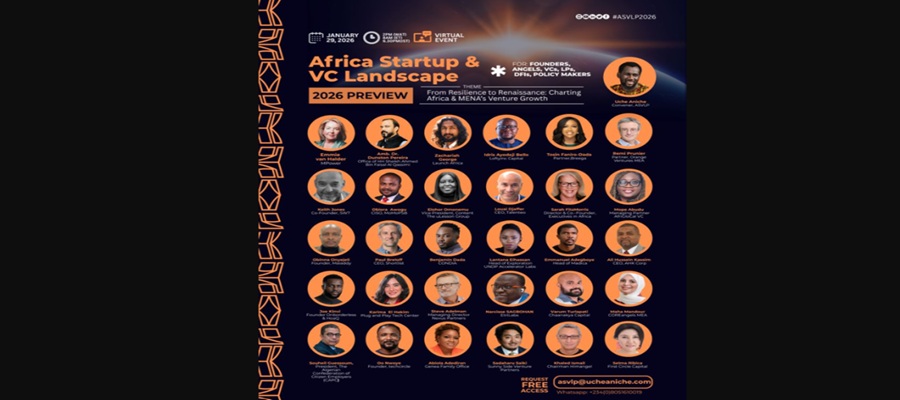Telecom
National Stakeholders Summit: Ashcraft to Address Vandalisation of Critical Infrastructure

The Ashcraft Centre for Social Science Research has chosen February 28th and March 1, 2022 for its forthcoming National Stakeholders Summit to address vandalisation of critical infrastructure and business assets in Nigeria.

According to the Centre, the Summit will hold at Congress Hall, Transcorp Hilton, Abuja, with the theme: ‘Protecting Nigeria’s Critical Infrastructure, Monuments And Business Assets’.
At a pre-event conference held Tuesday in Abuja, Chief of Strategic Planning & Innovations and Head of Secretariat of the Centre, Chiakor Alfred (PhD), recalled that the last two decades have demonstrated clearly that the nature of threats to Nigeria’s security have changed significantly.
Among these bottlenecks, he highlighted structural challenges, such as the systematic vandalisation, degradation and destruction of Nigeria’s critical national infrastructures, monuments and business assets; terrorism, insurgency, cyber-‐crimes, banditry, kidnapping, piracy, oil bunkering, drug trafficking and other forms of organised crime, adding that these vices have created an entirely new security environment.
According to him, Nigeria now faces more security threats that have different characteristics from classic military conflict between states.
“The gross expansion of the contours that define security boundaries makes it imperative to recognize the eco-‐systemic dimensions of the threats that stare at us daily and in every form,” he noted.
Alfred said the rampancy and intensity of the vandalisation and destruction of Nigeria’s infrastructures and assets prompted the call to arms by His Excellency Muhammadu Buhari, GCFR – President of the Federal Republic of Nigeria to the Armed Forces, Intelligence and Security Establishment and all Nigerians to see it as a patriotic duty to ensure maximum vigilance and shared responsibility in the protection and security of these Assets and platforms at all points in their life-cycle.
In the light of this, he said the National Stakeholders Summit is therefore a Private/Public Sector Partnership that aims at galvanizing responsibility and synergy for the prioritization of the Multi Agency/ Joint Risk Management Efforts to ensure the security and resilience of Nigeria’s critical national assets, in line with the Risk Management Framework of the National Protection Policy and Strategy 2022 (CNAINPPS 2022), and also, the Critical National Infrastructure Bill under consideration at the National Assembly.
His words: “These projections of the Summit are consistent with the provisions of the National Protection Policy and Strategy 2022 (CNAINPPS 2022); the National Security Strategy Framework; and the Critical National Infrastructure Bill currently under consideration at the National Assembly; the re-engineering of appropriate legislations; and the strategic roadmap for harnessing expert knowledge and country wide technical support for deterrence, codified response strategy and recovery architecture to Nigeria’s critical assets.
“The Summit further aims to deepen advocacy; harness expert/operational knowledge and country wide technical support to enhance deterrence, threat mitigation and desired security outcomes; and sustain confidence building through robust interface with all Stakeholders including Nigeria’s National and State Houses of Assembly; the Armed Forces, Security and Intelligence Agencies; Statutory Regulators in the diverse Sectors of Nigeria’s productive economy; Investors/ Business Owners; Operators of the Infrastructures and Assets; Professional and Civil Society Organizations; the Traditional Institution, Socio Cultural and Pressure Groups, etc.
The centre believed that by building inter/multi sectoral synergy, the Summit shall engender Stakeholders and citizens with shared responsibilities towards achieving the institutionalization of the road map and priorities of the policy frameworks crafted to provide deterrence, security and resilience of Nigeria’s assets.
It is also the expectation of the Conveners that the derivatives from the Summit shall enhance knowledge leadership & management, regenerate confidence in securing Foreign Direct Investment into Nigeria’s productive Sectors as canvassed by His Excellency President Muhammadu Buhari, GCFR, at different international fora; and also boost capital growth and turnkey business startups and development.”
Alfred further stressed that the security of lives, infrastructures, monuments and assets is the collective responsibility of every citizen, whether private or public.
He noted that issues of security, destruction of lives and property know neither religion nor ethnicity.
The Centre called on the partnership and support of all stakeholders, both in the Public and Private Sectors, with diverse political, religious and professional orientations to put aside all prejudices to help forge a common front to confront the monster that is threatening the integrity of our corporate existence as a people and as a nation.
“It is time also to live the slogan that says “if you see something, say something. If you hear something, do something.
“It is incumbent on us all therefore to engage robustly on how to deter and mitigate these challenges in a systematic and coordinated manner.
“This way, we can be sure of preserving our collective heritage and the sanctity of our God endowed resources, human, technical and material.”
Telecom
ASVLP 2026: Africa, MENA VCs Gear Up as Tech Funding Hits $4.1bn Rebound

As Africa and MENA’s startup ecosystems transition from post-correction resilience into a new phase of disciplined growth, the Africa Startup & VC Landscape Preview (ASVLP 2026) will convene leading founders, investors, policymakers, and ecosystem builders on January 29, 2026, for its second annual, agenda-setting virtual forum.

Following a challenging global venture cycle, 2025 marked a notable rebound across the African ecosystem, with startups raising an estimated $3.2–$3.3 billion over the full year.
The recovery was accompanied by significant structural shifts: Kenya emerged as the leading destination among Africa’s “Big Four” markets for the first time, while Nigeria recorded a year-on-year funding decline, reflecting changing investor preferences, macroeconomic pressures, and a broader recalibration toward capital efficiency and sustainability.
Sectorally, fintech remained the most funded vertical, while climate & energy, AI-enabled solutions, healthtech, and infrastructure-adjacent businesses gained increasing attention. Across Africa and MENA, development finance institutions (DFIs) and family offices played a more pronounced role in anchoring funds, deploying catalytic capital, and supporting blended-finance structures, reshaping how early-stage and growth capital is mobilized.
ASVLP 2026 is designed to translate these data points into forward-looking strategy.
The forum will bring together venture capitalists, angel investors, LPs, DFIs, family offices, founders, corporate leaders, and regulators from Africa, MENA, Europe, and North America to assess 2025 outcomes and chart priorities for 2026.
The program will feature keynotes, fireside chats, panels, and deep-dive roundtables, including discussions on:
· The 2026 Africa & MENA FinTech Landscape, focusing on security, profitability, regulation, and growth frontiers
· Emerging Fund Managers, capital formation, and LP alignment
· Talent, operator depth, and institutional capacity as constraints to scale
· Regulatory evolution and cross-border market integration
A major highlight of ASVLP 2026 will be the Final DealRoom Pitch Session, where a curated group of high-potential startups will present to an experienced panel of investors.
• Founders can apply to pitch via: bit.ly/ASVLP-DR-Founders
• Investors seeking DealRoom access can request entry via: bit.ly/ASVLP-DR-Investors
Confirmed speakers for ASVLP 2026 include Khaled Ismail (HIMangel), Idris Ayodeji Bello (LoftyInc Capital), Zachariah George (Launch Africa), Tosin Faniro-Dada (Breega), Selma Ribica (FirstCircle Capital), Maha Mandour (COREangels MEA), Joe Kinvi (Borderless), Remi Prunier (Orange Ventures MEA), Karima El Hakim (Plug and Play Tech Center), Souheil Guessoum (President, The Confederation of Citizen Employers – Algeria (CAPC)), Remi Prunier (Partner, Orange Ventures, MEA), Maha Mandour (COREAngels MEA), Ali Hussein (President, Kenyan FinTech Association), Patrick Okebu (CIO, Interswitch Group) among other leading voices shaping capital, policy, and innovation across the region.
“The conversation has shifted,” said Uche Aniche, Convener of ASVLP. “It’s no longer about whether capital will return to Africa and MENA, but what kind of capital, deployed with what discipline, and in service of which long-term outcomes. ASVLP exists to help the ecosystem make sense of that transition.”
Participation in ASVLP 2026 is free but strictly by invitation.
Interested participants are encouraged to repost the official announcement on LinkedIn and comment #ASVLP2026 to receive a private registration link. They could also email [email protected] and request invite.
Telecom
TikTok, Instagram Blamed in US Youth Suicide Lawsuit

Major social media giants Meta Platforms, TikTok and Alphabet’s YouTube will face a landmark jury trial this week in Los Angeles County Superior Court over allegations that their addictive designs have fuelled a youth mental health crisis, marking the first such case to reach this stage.

Social Media
The pivotal personal injury lawsuit centres on a 19-year-old Californian woman identified as K.G.M., who claims her childhood immersion in Instagram, Facebook, YouTube and TikTok—engineered with endless scrolls, autoplay videos, notifications and algorithms—sparked severe anxiety, depression and suicidal thoughts.
Dozens of similar suits have surged since 2022 from families, schools and states, accusing the firms of burying internal research on teen harms while prioritising ad revenue through youth-targeted engagement hooks, despite Section 230 protections for user content.
Plaintiffs seek damages and design overhauls, arguing platforms bypassed parents and preyed on vulnerable kids; defendants counter there’s no clinical “social media addiction” diagnosis, no proven causation—kids with issues often use less—and they’ve added safeguards like parental controls and time limits.
Echoing Australia’s under-16 bans, the trial will scrutinise thousands of internal documents, expert testimonies and K.G.M.’s story, potentially expanding tech liability amid debates where studies show complex links, not direct causation, between screen time and disorders like eating issues or self-harm.
A win could mandate warning labels, age gates or algorithm tweaks, reshaping global platforms as U.S. Surgeon General advisories and global scrutiny intensify pressure on Big Tech to prioritise child safety over profits.
Telecom
Meta Tests Paid Subscriptions Across Instagram, Facebook, WhatsApp

Meta is gearing up to trial paid subscription services on Instagram, Facebook, and WhatsApp, aiming to diversify revenue streams beyond advertising while maintaining free core access for all users.

Meta
The subscriptions will offer enhanced tools tailored for everyday users, creators, and businesses, including advanced content creation, sharing, and workflow features distinct from the existing Meta Verified verification program. Unlike a uniform rollout, Meta plans varied testing formats per app to match diverse audiences, experimenting with feature bundles based on user feedback to refine the model.
A key element involves integrating Manus, the autonomous agent firm Meta acquired for $2 billion in December, into these apps alongside its enterprise sales. Manus enables complex task automation with minimal input, with early signs like Instagram shortcuts already spotted by reverse engineer Alessandro Paluzzi.
Video tools feature prominently: Meta’s Vibes short-form video generator in the Meta AI app shifts to freemium, where paid tiers unlock higher monthly creation limits beyond the free baseline. On Instagram, subscriptions could enable unlimited audience lists, non-follower tracking, and anonymous Story views, though specifics for Facebook and WhatsApp remain under wraps.
Drawing from Meta Verified’s 2023 launch—which provides badges, support, and protection mainly for creators—these broader plans target wider appeal amid industry shifts. Ad growth slows against TikTok competition, while Snapchat+ boasts 16 million subscribers at $3.99 monthly, proving demand for value-driven paid perks despite subscription fatigue risks from streaming and storage fees.
Meta will phase tests gradually, prioritizing feedback to shape long-term viability without alienating free users.

 News3 days ago
News3 days agoLIRS to Invoke NTAA to Recover Unpaid Taxes from Bank Accounts, Others

 News3 days ago
News3 days agoAnambra Cuts Monday Pay to Kill Sit-at-Home

 E-Financial3 days ago
E-Financial3 days agoNIBSS, Others Flag 13,417 Nigerian Fraudsters on Person of Interest Portal

 E-Financial3 days ago
E-Financial3 days agoFirst Asset Management Receives Upgraded Ratings from Agusto &Co and DataPro

 E-Financial3 days ago
E-Financial3 days agoCBN Prepares Fresh Debit Card Rules to Improve ATM Services

 General News3 days ago
General News3 days agoNigeria Treats Religious Violence as Attack on State – NSA Ribadu

 E-Financial2 days ago
E-Financial2 days agoCBN Upgrades Licences of Opay, Moniepoint, Kuda, Palmpay, Paga to National Status
- E-Financial2 days ago
Nigeria’s 9 Top FinTech Firms Valued at $10.6Bn in January 2026

























